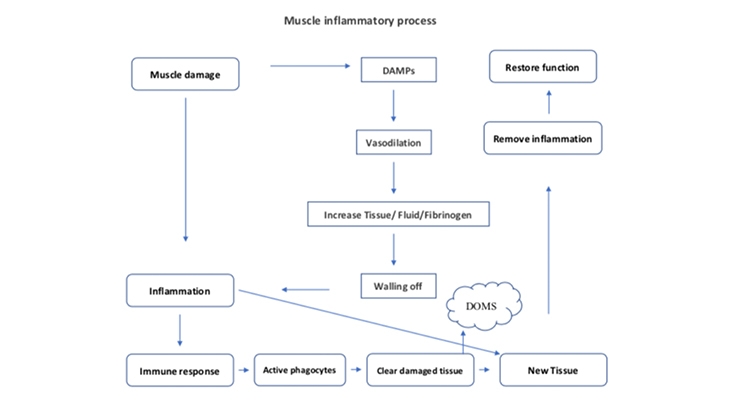Market Updates, Products & Ingredients, Research
Combination of Curcumin & Boswellia Shown to Promote Exercise Recovery
Unibar Corp. study found acceleration of muscle recovery post-exercise or post physical stress in healthy subjects.

By: Sean Moloughney

A unique combination of boswellia extract and curcumin extract were shown to accelerate muscle recovery post-exercise or post physical stress, according to a recent study published in the Journal of American College of Sports Medicine.
The blinded, randomized clinical study conducted at the University of North Texas, Denton, TX, assessed the post-exercise recovery and pain after seven days of supplementation with curcumin and EKTIBAFLEX, from Unibar Corp. or placebo in 14 healthy, active men and women. EKTIBAFLEX, Boswellia serrata extract standardized for 3-O-Acetyl-11-keto-ß-boswellia acid (AKBA) 90%, is eight times more bioavailable than regular 30% AKBA, according to Sevanti Mehta, CEO of Houston, TX-based Unibar Corp., a plant-based life sciences and ingredient supplier of branded, proprietary, research-supported botanical extracts.
The protocol challenged the subjects’ abilities to recover from exercise on repeated days, and involved Jacob’s ladder climbing, maximum effort cycling and downhill running. The first two activities create oxidative stress and fatigue, exacerbating muscle soreness, while the latter forces eccentric muscle contraction that causes strong muscle soreness.
Participants consumed the supplement or placebo for seven days prior to the first intensified exercise session and one booster dose after each session. Several tests were used to assess each subject’s perception of muscle soreness and pain in a variety of lower leg muscles. These included palpated visual analog pain scale (VAS) for pain, pain threshold/tolerance tests, and blood tests to determine creatine kinase, myostatin and cytokines.
According to the researchers, the results showed that supplementation with curcumin and EKTIBAFLEX may protect the muscle from injury as indicated by trends toward lower serum creatine kinase concentration particularly at days 3 and 4 when compared to placebo. Consumption of curcumin and EKTIBAFLEX reduced muscle injury as well as subjective muscle soreness, and maintenance of muscle strength. The placebo group, meanwhile, had higher subjective soreness and greater loss of muscle strength; loss of muscle strength is indicative of loss of muscle function as a result of injury from exercise. Further, the supplement group exhibited a trend toward reduced serum IL-6 1-hour post exercise following days 1, 2 and 3 exercise.
“The results of this study show an attractive potential for a supplement that will be effective for people who exercise on a regular basis or work in physically demanding occupations are prone to regular muscle damage,” said Dr. Velmurugan Shanmugham, Unibar vice president, new product development.
Depending on the nature of the exercise or work protocol, Shanmugham explained, this damage and the resultant muscle soreness can range from mild to extreme. Once muscle damage occurs, the body initiates a series of biological processes that eventually lead to the restoration of muscle tissue and function. One step in this process is the accumulation of localized inflammation. Unfortunately, the body often overshoots the quantity of inflammation needed for healing and the net effect is reduced physical functioning during the recovery period. Thus, excessive inflammation results in lost practice, performance, and workdays.
“Given the need to manage excessive inflammation during recovery from muscle injury, there is a need to identify naturally occurring substances that have anti-inflammatory potential yet are less potent than NSAIDs and without the negative health side-effects of NSAIDs,” said Shanmugham. “A combined treatment with curcumin and boswellia in the form of EKTIBAFLEX represent the potential to provide such benefit.”


